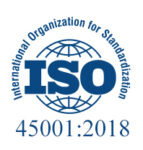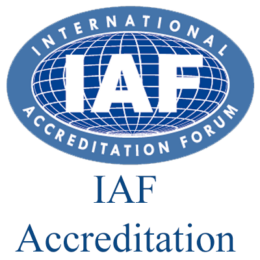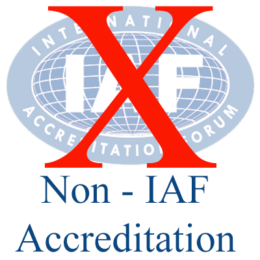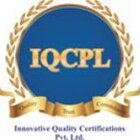
ISO 45001:2018
Occupational Health & Safety Management System (OH&S)
ISO 45001:2018 is an internationally recognized standard that specifies the requirements for an Occupational Health and Safety (OH&S) management system. It provides a structured framework for organizations to improve workplace safety, reduce risks, and enhance employee well-being. The standard focuses on hazard identification, risk assessment, legal compliance, and continuous improvement to prevent work-related injuries, illnesses, and fatalities. ISO 45001:2018 applies to organizations of all sizes and industries, promoting a proactive approach to occupational health and safety management.
Benefits of ISO 45001:2018 – Occupational Health & Safety Management System Offer
Connect with Us today
About
BRIEF ON ISO 45001:2018
ISO 45001:2018 is an internationally recognized Occupational Health & Safety Management System (OH&S) standard that helps organizations create a safer work environment, prevent workplace injuries and illnesses, and ensure compliance with legal and regulatory requirements. It provides a structured approach to hazard identification, risk assessment, and continuous improvement, ensuring the well-being of employees while enhancing overall operational efficiency.
CLAUSES OF ISO 45001:2018
The standard is structured into 10 clauses, with Clauses 4 to 10 being the key requirements:
- Clause 1: Scope – Defines the purpose and applicability of the standard.
- Clause 2: Normative References – Lists supporting standards referenced in ISO 45001.
- Clause 3: Terms and Definitions – Provides key terms used in the standard.
- Clause 4: Context of the Organization – Identifies internal and external OH&S factors affecting the organization.
- Clause 5: Leadership – Emphasizes top management commitment, worker participation, and safety culture.
- Clause 6: Planning – Covers risk assessment, hazard identification, and legal compliance obligations.
- Clause 7: Support – Includes resource management, competence, awareness, and communication.
- Clause 8: Operation – Focuses on hazard control, emergency preparedness, and response planning.
- Clause 9: Performance Evaluation – Involves monitoring, measurement, audits, and management reviews.
- Clause 10: Improvement – Deals with incident investigations, corrective actions, and continual improvement in OH&S performance.
Would you like this content formatted for social media, brochures, or training materials? 😊
ISO 45001:2018 – Occupational Health & Safety Management System
-
-
Improved Workplace Safety – Reduces the risk of work-related injuries, illnesses, and fatalities.
-
Legal & Regulatory Compliance – Ensures adherence to occupational health and safety laws, reducing legal liabilities.
-
Enhanced Employee Well-being – Promotes a healthier and safer work environment, boosting morale and engagement.
-
Risk Reduction – Identifies and mitigates workplace hazards before they lead to incidents.
-
Cost Savings – Lowers costs related to accidents, medical expenses, compensation claims, and downtime.
-
Increased Productivity – Fewer workplace disruptions due to accidents lead to higher efficiency and performance.
-
Stronger Reputation – Demonstrates commitment to employee safety, improving stakeholder and customer trust.
-
Continuous Improvement – Encourages ongoing evaluation and enhancement of health and safety performance.
-
There’s a global federation for all the accreditation bodies worldwide, that regulates these accreditation bodies, which is known as International Accreditation Forum or IAF. The task of IAF is to check any sort of negligence by an accreditation body while implementation of the quality specifications and carrying out the ISO certification process

I am text block. Click edit button to change this text. Lorem ipsum dolor sit amet, consectetur adipiscing elit. Ut elit tellus, luctus nec ullamcorper mattis, pulvinar dapibus leo.
I am text block. Click edit button to change this text. Lorem ipsum dolor sit amet, consectetur adipiscing elit. Ut elit tellus, luctus nec ullamcorper mattis, pulvinar dapibus leo.



















